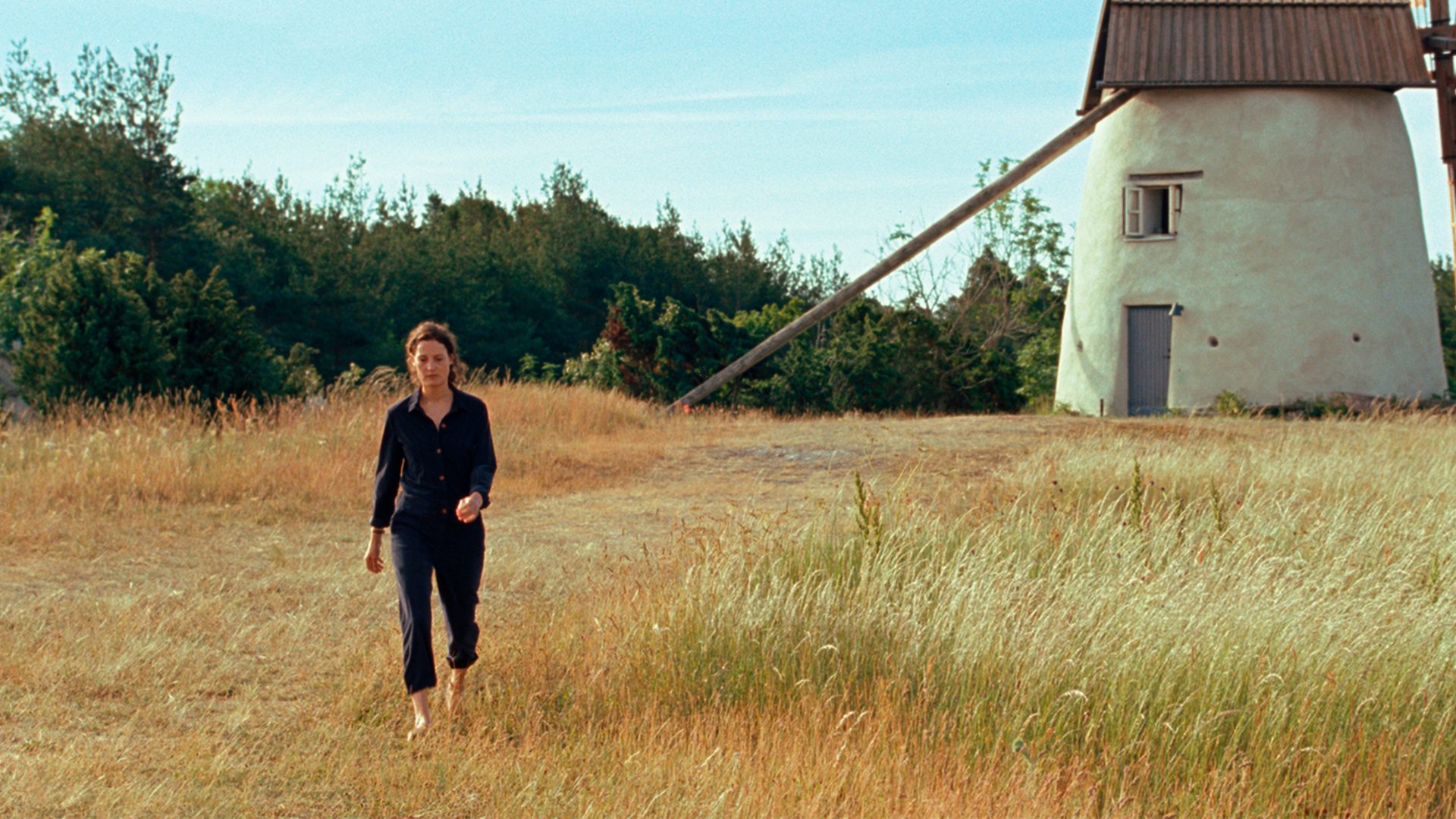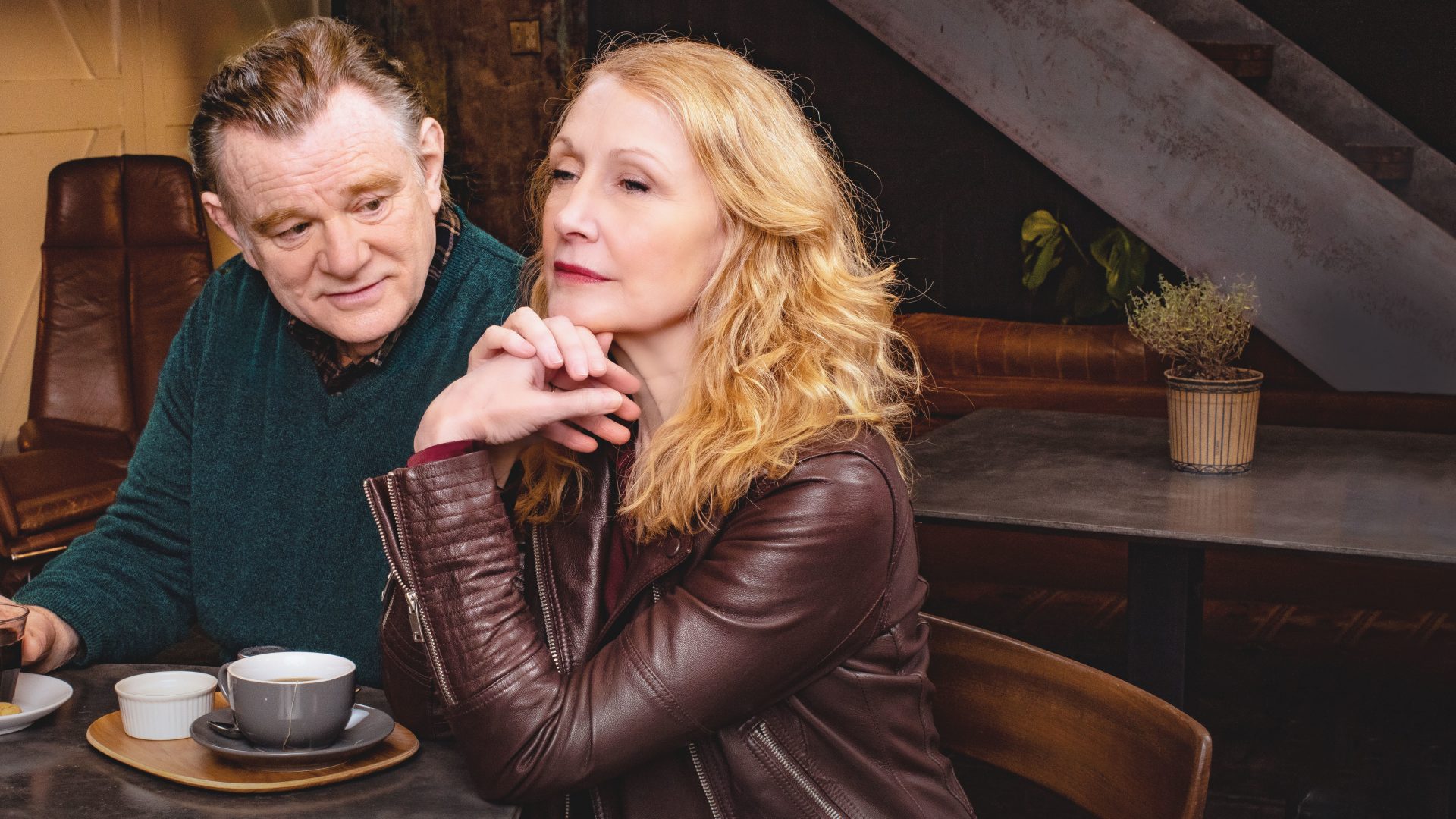A film about a film-maker and her film-maker partner, writing a film about a film-within-a-film, while visiting a place that was home to a famous film-maker… that’s Bergman Island, and it could only really be French, although it’s not, because it’s the first English-language film from French director Mia Hansen-Løve.
It sounds twisting and convoluted and pretentious but it isn’t really. More nuanced than Top Gun, sure, but it never feels up itself, and it all makes perfect sense when you see it on the screen, starring Tim Roth and Phantom Thread’s Vicky Krieps on the one level, and Australian star Mia Wasikowska and Norway’s Anders Danielsen Lie in the film within.
What’s complicated are the emotions you feel while watching it, your empathies and antipathies to the characters and their behaviours and this is exactly what this most subtle and thoughtful of European film-makers has done time and again.
Bergman Island is on UK cinema screens now, and then will be streaming on MUBI. It played at Cannes last year, where Hansen-Løve unveiled the even more sublime One Fine Morning, starring Léa Seydoux, this year.
“It looks like I just pop them out, a film a year,” acknowledges Hansen-Løve. “But I don’t, not at all, even if I have now been making movies as a director for 15 years now, since 2007.”
Bergman Island was shot on Fårö (pronounced like a Scotsman saying Far Out), the bleak, Baltic isle where Sweden’s Ingmar Bergman retreated to a hermit-like existence to write and then (less hermetically) shoot several of his enduringly iconic films including Scenes from a Marriage and Persona. The island is now part summer resort, part museum, part shrine, part retreat – a pilgrimage site for Bergman fans with a screening room and lectures and festivals every year, including the Bergman Safari, which tours people around the various locations familiar from his films.
“You can go there and have no interest in Bergman,” says Hansen-Løve, “but if you have the slightest knowledge of his films then it is a much more intense experience. It’s the only place where I’ve come to believe in ghosts.”
Mia is in love with Fårö. She visited as soon as she heard of it and says she was working on an idea about the constrictions of a couple who both made films. It’s no secret she was in a long-term relationship herself with French director Oliver Assayas (Irma Vep, Personal Shopper), and the couple had a child, Vicky, together. Perhaps less-known is that the two split up in 2017 and Mia has now had another child, with film-maker Laurent Perreau.
“Fårö was more magical and inspirational than I could have imagined,” she says now. “So I wrote the film there, then shot the film there, then had to break for Covid and go back there to finish the other half of the film, so while that was not perfect, it did mean I got to be on Fårö a lot and, the desk you see in the movie in the little farmhouse where Vicky Krieps’ character writes her film, that’s where I wrote this film. There’s a lot of meta going on.”
More layers of it than are even in the final movie, it seems, given that she was going through the break-up with Assayas at the time of writing and was even prompted to accelerate it as she wrote. “The idea I had was a portrait of a couple who were movie directors and how that becomes difficult for her, and so it would become a film about her finding artistic emancipation, how hard it is for people to get the balance of a life you’re sharing – not just film-makers, but everyone in any relationship – and how you need your own space and privacy and how to fight for that.
“I was hoping that if I went deep enough I could reach some universality, that if I was personal and honest, as many people as possible would find something in the story that talks to them. Of course, I understand that most people might not give a shit!”
I ask if the spirit of Bergman and his purist approach seeped in while she was there and affected this film. Her answer is so passionate I’m almost taken aback.
“I felt his presence, I felt his genius and his loneliness and integrity, and I was in awe of his choice to live there, so remotely in order to preserve his freedom and independence as an artist,” she says. “So few people can manage do that and he just was pure and made films and wrote films he cared about until the end of his life, not caring what anybody else says he should do, and it’s not just the houses, but the whole landscape feels haunted.”
And you admired that, did you? “Of course I admired it, I mean he’s my God!” she cries. But nobody can live like that really, can they? “I want to do that,” she insists. “I want to live like him on an island but I can’t. I have another life, I have kids, but I want to. I do. He was already an old man by the time he went there – but it’s the integrity, the way he made no compromise artistically speaking, that’s what speaks to me, the way he kept this moral and artistic strength.”
Much of her anger stems from the fact that Bergman had nine children from six different partners over his lifetime – behaviour very few public figures would get away with nowadays, and which no woman could ever dream of doing. “I couldn’t have nine children, just physically,” she says.
“But I couldn’t also just leave them to go off and make films without being
paralysed by thoughts of being a bad mother. I don’t think he worried about
being a bad father. Men just didn’t care about that.”
I daren’t say it to her, but I much prefer her films to those of her idol and I do point out that her films, thankfully, are very different to his. “Totally,” she conceded. “And I never try to imitate him – I have another story, I’m a woman working in the 2010s and 2020s and it wouldn’t make sense to imitate his work in any way but I think you can be a huge admirer of an artist, and have little in common in terms of your own work and I hope in my modest way I try to at least preserve integrity in my way of working, like he did. I don’t have the strength and creative power that he did but I do have awareness of the importance of remaining uncompromised in my way of being a director, and I can hold to that.”
Like most of Hansen-Løve’s films, they lose something in the explanation, so I won’t ruin Bergman Island by probing its plot. She’s a director who works in moods and atmospheres, from the weepy The Father of My Children (a film with which I fell in love in 2009) and the ecstasies of Goodbye First Love, to the
intense highs and come-downs of 1990s Paris clubbing film Eden (2014) and the ineffable, mounting everydayness of her latest, One Fine Morning, set back in Paris, and in French, after the travels of Bergman Island. Is there a sense of doing something different in each film?
“All my films are very related to each other,” she says. “I can make a bridge between all of them, and they’re equally personal in different ways, that’s just how I write and work, and people say they’re autobiographical, but they’re not really, not literally, you know, I do invent many things. But if Bergman Island was about me having to reinvent and escape my own territory, getting away from France and Paris, then yes, Un Beau Matin is practically the opposite, really – it’s in Paris, very much dealing with reality and me facing the everyday things you have to go through.”
The film, which won a Europa Prize for Best European Film in the Director’s Fortnight section of Cannes 2022, showcases a beautiful performance from Léa Seydoux as a successful interpreter, a single mum, a dutiful and grieving daughter caring for her increasingly frail and fading father, and also a re-awakened lover beginning a passionate but risky affair with a married man (Melvil Poupaud – who, with his curly hair, does look a bit like Mia’s new partner, Perreau).
“Léa’s character is feeling opposite emotions at the same time: there’s the
loss of her dad, grief and her rebirth, in some way, a new love and a new
sexual awakening – these are very opposite, so you’re looking at life and
death and you’re torn between them all the time,” Mia says. “A more conventional film would be just about a love story, or a death story, but here
it’s both and that was daring for me, to look at two things that are in dialogue
with each other inside the same person. That’s normal, I think?”
Well, I agree, and certainly, the trend for dementia films is becoming fairly normal. There’s François Ozon’s Everything Went Fine (more about that
one next week), Gaspar Noé’s brilliant Vortex, and Anthony Hopkins’ Oscar-winning turn in Florian Zeller’s The Father… “I’m sorry,” she says, holding
up her hands. “I see around me with my friends and colleagues, that now everyone has these concerns, parents or grandparents, and they have to face
these issues of nursing homes and how painful it is to put your parents in these limbo places between life and death, nobody wants it, and I see it happening to so many people I know, it’s part of our modern lives, an issue of our time, so of course I’m going to reflect that.
“But it’s not the only issue,” she adds. “Just another thing a modern woman has to deal with.”
Seydoux is great to watch throughout, going from concerned daughter to caring mother to carefree lover then heartbroken mistress. It’s one of her most subtle performances and my favourite part is where she breaks down, slightly, at work, stumbling over the German translation of some construction project at a conference where she’s interpreting.
The work/life balance has tipped over and she needs a moment to get her poise back. In that moment, she is allied to Vicky Krieps’ character as she writes and drifts in Bergman Island, both of them on-screen embodiments of their creator, a woman dealing with all life can throw at her while she tries to get a job done. And suddenly, life and art coalesce and the work of Mia Hansen-Løve hits the spot again.




